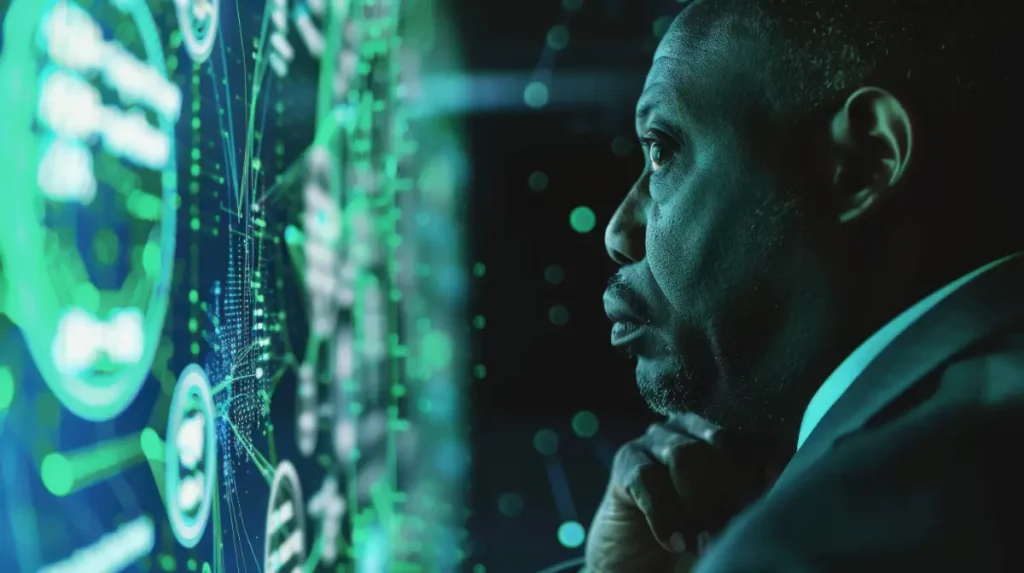As Africa rapidly integrates digital technologies into its socio-political and economic systems, it faces new and complex challenges related to cyber conflicts and digital diplomacy. The rise of digital infrastructure has transformed how African nations engage in domestic and international affairs, leading to a significant shift in conflict dynamics. Traditional forms of conflict, such as territorial disputes and political unrest, are increasingly being supplemented or, in some cases, replaced by cyber-related threats. These include hacking, cyber espionage, and misinformation campaigns, which pose substantial risks to national security, economic stability, and social cohesion.
In recent years, the continent has witnessed several high-profile cyber incidents highlighting digital diplomacy’s growing importance. For instance, the 2018 elections in Kenya were marred by allegations of cyber interference and misinformation campaigns, which were reportedly aimed at influencing public opinion and electoral outcomes. Similarly, South Africa has experienced multiple ransomware attacks targeting critical infrastructure, such as healthcare and municipal services, underscoring the vulnerabilities associated with increased digital reliance.

Digital diplomacy has emerged as a crucial tool for managing these new forms of conflict. It involves leveraging digital platforms and technologies to advance diplomatic objectives, manage cyber threats, and foster international cooperation. The role of digital diplomacy is particularly relevant in Africa, where many countries are still developing their cyber capabilities and strategies. For example, the African Union (AU) has initiated several programmes aimed at enhancing cybersecurity and promoting regional collaboration to address cyber threats. These efforts are critical in establishing a framework for digital conflict resolution and strengthening the continent’s ability to navigate the complex landscape of cyber diplomacy.1Ulafor, Onoh John (2020) ‘Gandhi’s philosophy of non-violence: towards conflict resolution and peace in Africa’, International Journal of Humanities and Innovation, 3, 60–66, Available at: http://dx.doi.org/10.33750/ijhi.v3i2.75
The introduction of digital technologies has thus redefined the nature of conflict and diplomacy in Africa, presenting both opportunities and challenges. The continent’s ability to adapt to these changes will significantly influence its stability and development in the digital age. Understanding and addressing these dynamics through effective digital diplomacy is essential for mitigating cyber conflicts and promoting a secure and resilient digital environment.
Emerging trends in cyber conflicts
The digital age has brought forth a range of new and complex cyber conflicts that are reshaping the landscape of security and diplomacy in Africa. One of the most concerning trends is the rise of sophisticated cyber-attacks that target critical infrastructure. For example, in 2020, South Africa faced a significant ransomware attack on its healthcare system, which led to substantial disruptions in patient services and highlighted the vulnerabilities of essential public services to cyber threats.2Mungadze, S. (2020, August 31). Life Healthcare reveals damage caused by data breach. ITWeb. Retrieved from https://www.itweb.co.za/article/life-healthcare-reveals-damage-caused-by-data-breach/rW1xLv59YPGvRk6m. Accessed on August 10, 2024. Such attacks not only compromise the immediate operational integrity of services but also have long-term repercussions for public trust and safety.3Carola FREY, (2023). “Cyber Diplomacy and International Cooperation: Building Resilience in the Digital Age”, International Journal of Cyber Diplomacy, ISSN 2668-8662, vol. 4, pp. 43–51. https://doi.org/10.54852/ijcd.v4y202304
Another trend is the use of cyber espionage and surveillance to influence political and economic outcomes. In several instances, African countries have reported cyber espionage activities aimed at stealing sensitive governmental and corporate information. For instance, there have been allegations of state-sponsored cyber espionage targeting political opponents and civil society organisations in various countries.4Nathaniel Allen and Noëlle van der Waag-Cowling.(July 15, 2021). How African states can tackle state-backed cyber threats. Brookings Institute. Retrieved from: https://www.brookings.edu/articles/how-african-states-can-tackle-state-backed-cyber-threats/. Accessed on August 8, 2024. These activities are often aimed at gaining strategic advantages or suppressing dissent, and they pose significant risks to democratic processes and human rights.
Misinformation and disinformation campaigns are also increasingly prevalent, with social media platforms being exploited to spread false narratives and manipulate public opinion. During the 2022 Ethiopian conflict, both state and non-state actors used social media to disseminate misleading information and propaganda, exacerbating the conflict and complicating peace efforts. This manipulation of information undermines trust in media and governmental institutions and can incite violence or deepen existing divisions within societies.5Ghebretekle, Tsegai Berhane and Macdonald, Rammala (2019) ‘Traditional African Conflict Resolution: The Case of South Africa and Ethiopia’, Mizan Law Review, 12, 325, Available at: http://dx.doi.org/10.4314/mlr.v12i2.4
Furthermore, the rise of cyber-enabled financial crimes, including digital fraud and cryptocurrency-related scams, has become a notable concern. As African nations embrace digital financial systems, they are also becoming targets for cybercriminals exploiting these technologies for financial gain. The increasing sophistication of financial fraud schemes not only impacts individuals but also threatens the stability of financial institutions and economic systems.
These emerging trends underscore the urgent need for comprehensive and adaptive cybersecurity strategies. African countries must enhance their digital infrastructure, improve their cyber defence capabilities, and foster regional and international cooperation to address these evolving threats effectively. The dynamic nature of cyber conflicts requires continuous monitoring and innovation to safeguard against the multifaceted risks posed by the digital era.6Akinola, Adeoye O., and Uzodike, Ufo Okeke (2017) ‘Ubuntu and the Quest for Conflict Resolution in Africa’, Journal of Black Studies, 49, 91–113, Available at: http://dx.doi.org/10.1177/0021934717736186 [1] Gatlan, Sergiu. “Ransomware Attack Shuts Down City of Johannesburg’s Systems.” Bleeping Computer, October 25, 2019. Available at: https://www.bleepingcomputer.com/news/security/ransomware-attack-shuts-down-city-of-johannesburgs-systems/ Accessed on October 14, 2024.
Impact of cyber conflicts on security and stability
The impact of cyber conflicts on security and stability in Africa is profound and multifaceted, reflecting the growing complexity of digital threats in a rapidly evolving technological landscape. One prominent example is the 2019 cyber-attack on South Africa’s City of Johannesburg. Hackers encrypted critical data and disrupted city services, including banking and utilities, which significantly impacted the city’s daily operations. This attack caused immediate operational chaos and exposed vulnerabilities in the digital infrastructure of key urban centres.7Gatlan, Sergiu. “Ransomware Attack Shuts Down City of Johannesburg’s Systems.” Bleeping Computer, October 25, 2019. Available at: https://www.bleepingcomputer.com/news/security/ransomware-attack-shuts-down-city-of-johannesburgs-systems/ Accessed on October 14, 2024. The disruption had broader implications for public trust and economic stability, highlighting how cyber conflicts can undermine societal functions and economic systems.
8Ebegbulem, Joseph C. (2011) ‘Nigeria and conflict resolution in Africa: The Darfur experience’, Civilizar, 11, 69, Available at: http://dx.doi.org/10.22518/16578953.34 The 2020 attack on the Nigerian government’s web portals, attributed to a group of hackers demanding political change, revealed how cyber threats could be employed to influence political stability. Such attacks can exacerbate existing tensions and contribute to the erosion of confidence in governmental institutions, thereby destabilising the political landscape.

Additionally, the ongoing conflicts in the eastern Democratic Republic of the Congo (DRC) illustrates how cyber warfare can intersect with physical violence. Rebel groups and external actors have been reported to use cyber tactics to disrupt communications and spread misinformation, complicating peacekeeping efforts and negotiations.9Africa Center for Strategic Studies. (2017). The Role of External Actors in the DRC Crisis. Retrieved from: https://africacenter.org/spotlight/role-external-actors-drc-congo-crisis-sadc-au-icglr-un-eu/. Accessed on August 7, 2024. In 2024, the DRC accused the M23 rebel group and Rwanda of using false Global Positioning System (GPS) signals to disrupt local air traffic in the North Kivu region. These false signals traced back to the Rwanda Defence Force (RDF) and M23, interfered with civil aviation and humanitarian missions, complicating efforts to deliver aid and support to displaced populations amid ongoing conflict. The disruption of air traffic posed a significant threat to both safety and peacekeeping operations in the area.10Radar Africa. (2024, July 29). DRC accuses M23 rebels and Rwanda of disrupting air traffic. Radar Africa. Retrieved from: https://radarafrica.com/africa/drc-accuses-m23-rebels-and-rwanda-of-disrupting-air-traffic// Accessed on October 14, 2024. This interplay of cyber and physical conflict demonstrates how cyber threats can exacerbate existing instability and hinder conflict resolution processes.
Cyber conflicts also affect economic stability, as seen in Kenya’s financial sector. In 2021, a sophisticated phishing attack targeted several banks, compromising sensitive financial information. The resulting financial losses and damage to the sector’s reputation had rippling effects on investor confidence and economic growth.11ENHALO (2021). Cybercrime – Major Threat to Financial Sector. Retrieved from: https://enhalo.co/360-security/cybercrime-major-threat-to-financial-sector/ Accessed on October 14, 2024. This incident highlighted the vulnerability of financial institutions to cyber threats and their potential impact on national economic stability.
Cyber conflicts have far-reaching implications for security and stability in Africa. They disrupt essential services, undermine political trust, complicate peacekeeping efforts, and threaten economic growth. As digital threats continue to evolve, African nations must enhance their cybersecurity measures and digital diplomatic strategies to mitigate these risks and ensure stability in an increasingly interconnected world.
Digital diplomacy strategies
In the context of rising cyber conflicts, digital diplomacy has become a pivotal strategy for managing and mitigating the impact of these new threats. African countries are increasingly recognising the need for robust digital diplomacy frameworks to protect their interests and foster international cooperation. This shift is evident in the evolving approaches that countries across the continent are adopting to address cyber challenges.12Zongo, Harouna (2020) ‘A change project to promote conflict resolution to ensure sustainable development in Africa’, Studia Periegetica, 31, 111–121, Available at: http://dx.doi.org/10.5604/01.3001.0014.5965
One notable example of digital diplomacy in action is the AU’s efforts to bolster regional cybersecurity. The AU has established the African Union Cybersecurity Strategy, which aims to create a cohesive approach to combating cyber threats across member states. This strategy includes initiatives such as the AU’s Cybersecurity Centre of Excellence, which provides support and guidance on cybersecurity issues to national governments. By fostering a collaborative approach, the AU seeks to enhance the collective cyber defence capabilities of its member states, and promote information sharing and best practices.13African Center for Strategic Studies. (2022). African Lessons in Cyber Strategy. Retrieved from: https://africacenter.org/spotlight/african-lessons-in-cyber-strategy/ Accessed on October 14, 2024.
Similarly, individual countries have been proactive in developing their digital diplomacy strategies. In Kenya, for example, the government has launched the National Cybersecurity Strategy, which outlines measures to strengthen the nation’s cyber resilience and secure its digital infrastructure. The strategy emphasises the importance of international cooperation and partnerships in addressing cross-border cyber threats. Kenya’s approach includes engaging with international organisations and allies to exchange intelligence and coordinate responses to cyber incidents.14Horn International Institute for Strategic Studies. (2021). Time for a Reboot: Cybersecurity and Government Policy in Kenya. Retrieved from: https://horninstitute.org/time-for-a-reboot-cybersecurity-and-government-policy-in-kenya/ Accessed on October 14, 2024.
Another critical aspect of digital diplomacy is the role of public-private partnerships in enhancing cybersecurity. In Nigeria, the government has collaborated with technology companies and cybersecurity experts to improve its national cyber defence. This collaboration has led to the development of new tools and techniques for detecting and responding to cyber threats, as well as initiatives to raise awareness about cybersecurity best practices among the public and private sectors.
Despite these advancements, several challenges remain in implementing effective digital diplomacy strategies. One significant challenge is the lack of technical expertise and resources in many African countries, which hampers their ability to develop and execute comprehensive cybersecurity plans.15Adams, Adeola, and Iwu, Chux Gervase (2015) ‘Conflict resolution: Understanding concepts and issues in conflict prevention, management, and transformation’, Corporate Ownership and Control, 12, 431–439, Available at: http://dx.doi.org/10.22495/cocv12i4c4p1 Additionally, the rapid pace of technological change requires continuous adaptation and innovation in digital diplomacy efforts. Ensuring that policies and strategies remain relevant and effective in the face of evolving cyber threats is a constant challenge for policymakers. Digital diplomacy strategies are crucial for navigating the complex landscape of cyber conflicts in Africa. The continent’s efforts to develop and implement these strategies demonstrate a growing recognition of the importance of cybersecurity in maintaining national and regional stability. However, ongoing challenges highlight the need for continued investment in cybersecurity infrastructure, expertise, and international collaboration to address the ever-evolving threats of the digital age effectively.
Assessment of regional and international responses

The assessment of regional and international responses to emerging cyber conflicts in Africa reveals a complex landscape of collaboration and challenge. On a regional level, African nations have made significant strides in addressing cyber threats through collective frameworks and initiatives. The AU, for instance, has been instrumental in promoting cybersecurity through the establishment of the African Cybersecurity Resource Centre (ACRC) and the adoption of the AU Convention on Cyber Security and Personal Data Protection. These efforts aim to harmonise national cybersecurity policies, foster collaboration among member states, and enhance the continent’s overall cyber resilience.16Hammed, Hanafi A. (2015) ‘Appraising the Role of African Union: the New Partnership for Africa’s Development in Conflict Prevention and Management in Africa’, International and Comparative Law Review, 15, 69–88, Available at: http://dx.doi.org/10.1515/iclr-2016-0036
However, the effectiveness of these regional frameworks has been mixed. While the AU’s initiatives have laid the groundwork for a coordinated approach to cybersecurity, implementation across member states has been uneven.17Apuuli, Kasaija Phillip (2020) ‘The African Union and Peacekeeping in Africa: Challenges and Opportunities’, Vestnik RUDN. International Relations, 20, 667–677, Available at: http://dx.doi.org/10.22363/2313-0660-2020-20-4-667-677 Some countries have developed robust national cybersecurity strategies, while others lack the necessary infrastructure and resources. For example, Kenya and South Africa have emerged as leaders in cyber policy and response, developing sophisticated national cybersecurity strategies and investing in cybersecurity infrastructure. In contrast, several other African countries struggle with limited technical capacity and funding, hindering their ability to counter cyber threats effectively.
International responses to cyber conflicts in Africa also play a crucial role in shaping the continent’s cybersecurity landscape. Global organisations and partnerships, such as the United Nations Office on Drugs and Crime (UNODC) and the Global Forum on Cyber Expertise (GFCE), have provided support through capacity-building initiatives and technical assistance. These efforts include training programmes, policy advice, and the sharing of best practices. For example, the UNODC has worked with African countries to enhance their legal frameworks for combating cybercrime, while the GFCE has facilitated knowledge exchange and collaboration among international and regional stakeholders.18GFCE (Global Forum on Cyber Expertise). (2021). Annual Report 2021. Global Forum on Cyber Expertise. Retrieved: https://thegfce.org/news/release-of-the-gfce-annual-report-2021/ Accessed on October 14, 2024.
Despite these positive developments, challenges remain in the alignment and coordination of international support. Donor-driven initiatives often lack coherence with regional strategies, leading to fragmented and overlapping efforts. Additionally, there is a need for greater emphasis on addressing the specific needs of individual countries rather than adopting a one-size-fits-all approach. For instance, while international assistance has helped improve cybersecurity infrastructure in some countries, it has not always been accompanied by sustained support for local capacity-building and institutional development.19Twagiramungu, Noel; Duursma, Allard; Gebrehiwot Berhe, Mulugeta; and de Waal, Alex (2019) ‘Re-describing transnational conflict in Africa’, Journal of Modern African Studies, 57, 377–391, Available at: http://dx.doi.org/10.1017/s0022278x19000107
While regional and international responses to cyber conflicts in Africa have made significant progress, there are critical areas for improvement. Strengthening coordination between regional frameworks and international assistance, addressing disparities in national capacities, and focusing on tailored support for individual countries are essential for enhancing Africa’s overall cyber resilience. Addressing these challenges will be key to building a more robust and effective cybersecurity environment across the continent.
Recommendations and future directions
As African nations grapple with the complexities of emerging cyber conflicts and the evolving role of digital diplomacy, several key recommendations and future directions can be identified to enhance cybersecurity and digital conflict management on the continent. Addressing these areas effectively is crucial for improving resilience and fostering stability in an increasingly digital world.
One primary recommendation is the need for comprehensive and unified national cybersecurity policies. Many African countries have developed individual strategies, but these often lack coherence and integration at a regional level. To address this, it is essential to create standardised frameworks and protocols that facilitate cross-border cooperation and information sharing. For example, the AU’s Cybersecurity Strategy provides a foundational framework, but there is a need for deeper implementation and alignment with national policies. Strengthening these frameworks can help ensure a coordinated response to cyber threats and build a more resilient regional cybersecurity infrastructure.
Investing in cybersecurity education and capacity building is another critical area for future development. The shortage of skilled cybersecurity professionals is a significant challenge across the continent. Countries such as South Africa and Kenya are making strides by incorporating cybersecurity into educational curricula and offering specialised training programs. However, broader efforts are needed to expand these initiatives and ensure that they reach a larger audience. Collaborations between governments, educational institutions, and private sector organisations can help build a robust talent pipeline and address the skills gap in cybersecurity.
Public-private partnerships play a crucial role in enhancing cybersecurity capabilities. The collaboration between the Nigerian government and tech companies, as seen in their joint efforts to develop cybersecurity tools and raise awareness, serves as a valuable model. Expanding such partnerships across the continent can facilitate the development of innovative solutions and promote best practices in cybersecurity. Additionally, engaging with international partners and organisations can provide African nations with access to advanced technologies, expertise, and resources needed to tackle complex cyber threats.

Furthermore, promoting digital literacy and public awareness is essential for building a cyber-aware society. In many African countries, there is a general lack of awareness about cybersecurity risks and best practices. Initiatives to educate the public about safe online behaviour, the risks of cyber threats, and the importance of cybersecurity can help mitigate the impact of these threats. Campaigns and educational programmes targeting various segments of society, including businesses, government agencies, and individuals, are crucial for fostering a culture of cybersecurity.
Looking to the future, there is also a need for ongoing research and innovation to stay ahead of emerging cyber threats. As technology evolves, so do the tactics and techniques used by cybercriminals. Investing in research and development can help African nations anticipate and counter new threats more effectively. Encouraging innovation in cybersecurity technologies and practices can provide a competitive edge in defending against increasingly sophisticated cyber-attacks. Advancing Africa’s cybersecurity and digital diplomacy efforts requires a multifaceted approach involving policy development, capacity building, public-private partnerships, and public awareness. By addressing these areas and fostering regional and international cooperation, African countries can better manage cyber conflicts and enhance their digital resilience. These efforts will be crucial for navigating the evolving landscape of cyber threats and securing a stable and prosperous digital future for the continent.
Abraham Ename Minko is a senior researcher and policy analyst. He is also a PhD candidate in Political Science and International Relations, at Istanbul University, Türkiye.








